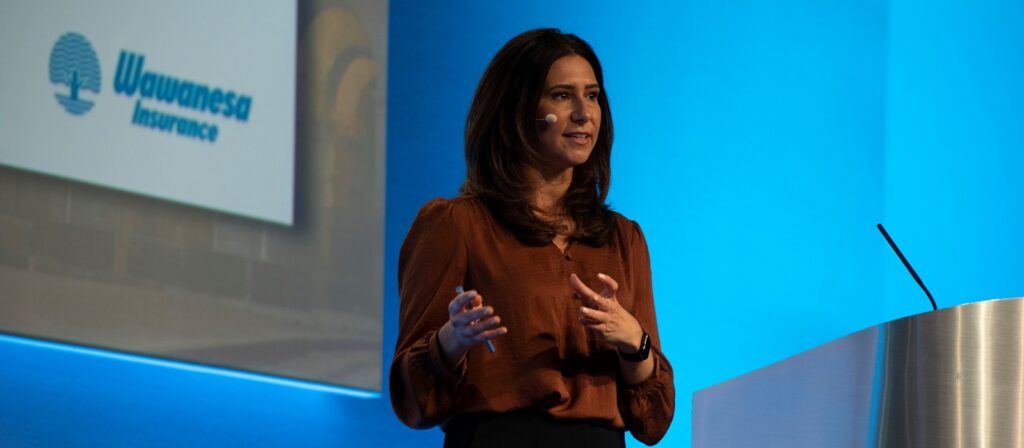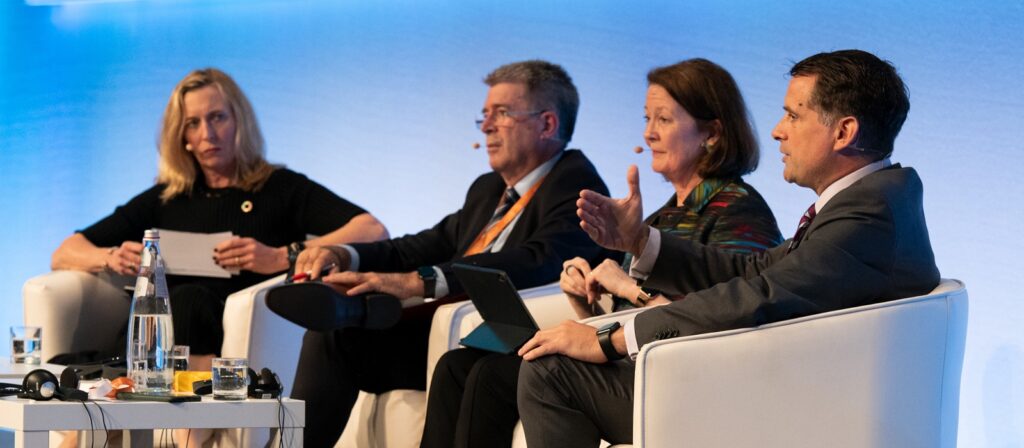In 2019, Wawanesa, one of the largest mutual insurers in Canada, embarked on a strategic journey to redefine and operationalise mutuality within its business, focusing on member-centricity, community impact, and sustainability. This process involved extensive research, global peer learning, and internal reflection. Wawanesa has since developed a "Mutuality Framework" to guide its purpose, vision, and strategy, ensuring its operations are aligned with its mutual ethos. The company continues to evolve, learning from the global mutual insurance community while taking bold steps, such as the sale of its U.S. business, to stay true to its long-term mutual values.
Wawanesa is one of the largest mutual insurers in Canada, with a long history dating back to 1896. In this 128 years, the mutual has grown into a diversified multi-line insurance company serving almost 2 million members across 9 regions with over 5,000 employees.
In 2019, Wawanesa began an intentional and focused journey to understand and define mutuality, and what it means for the organisation, its stakeholders, and as a business strategy.
It began by examining its mutuality, looking at what it means to be a mutual, what mutuality enables, its constraints, and how that translates into its strategy. Senior leaders and the Board of Directors engaged in discussions around mutuality, examining historical documents, letters from previous CEOs sent to federal government denouncing demutualisation, case studies from around the globe, and even a book on the history of Wawanesa.
A realisation emerged that Wawanesa, a mass market insurer, did not truly know its members, and the organisation felt it needed to better understand them: what was keeping them up at night; what they wanted; and how Wawanesa could add value to their lives. Further research also revealed that the majority of members did not actually know what a mutual was.
Defining mutuality to integrate into strategy
The next step of the research involved reaching out to other mutual insurers across ICMIF’s global network. Numerous conversations with fellow ICMIF members allowed Wawanesa to learn about where these peer companies were on their respective “mutuality journeys” and what mutuality meant within their respective organisations.
This research was used to create a “Mutuality Framework”, starting with the two guiding principles that Wawanesa wanted to follow: member-centricity, and community and sustainability. This is underpinned by operational performance fundamentals of being a stable, consistent and financially-strong insurance company.
In this process, Wawanesa was intentional in how it considered the value proposition of mutuality for its various stakeholders, including its members, employees, the Board, reinsurance partners and brokers. Across each stakeholder group, it thought about how the organisation could provide value in the short term and the aspirational things it wanted to deliver in the future.
The strategy framework was then taken to the Board, and they came out with new purpose (“We are here to look after one another”), vision and values.

Published October 2024
Wawanesa’s “Mutuality Framework”

Wawanesa’s previous vision was very descriptive and technical. The new vision (“Together we will build a safer, healthier, more sustainable future for our members and communities”) is more emotive and talks about the measurable challenges that Wawanesa wants to tackle, and the impact it can have: looking after one another, to create better futures for its members and their communities. A corporate video was created to communicate this new purpose and vision internally, to bring employees on board.
The gaps in capabilities were then examined and Wawanesa looked at the areas where it felt it was doing well at that time, and what it could reasonably deliver in the future. It used this to established its pillars of mutuality:
- To be a well-run company so that they can give more back to members and their communities (“do well to do good”);
- To be truly member-centric, understanding members, and building members’ concerns and interests into products, governance, policies, and decision making;
- To provide exceptional service.
Operationalising mutuality: Learning and adjusting
An executive reorganisation introduced new roles, responsibilities and functions to align with the new strategy. Wawanesa looked into how to invest in areas to move the strategy forward, and introduced several new departments, including sustainability, marketing and member experience.
However, executing the strategy was a challenge for Wawanesa. Operationalising mutuality sounds great in theory, but it was much harder to execute in practice.
There was a shift of focus in governance around the definition of ‘member’. Wawanesa looked how members are considered across all of its policies, products, and pricing. With subsidiaries, including a stock-owned life company, the company questioned whether policyholders should be considered members, and how to best define membership in an inclusively way.
The company recognises that it still has work to do in this area. The insurer’s current systems are product and policy-centric, however it is currently on a journey toward member-centricity, including building a single view of the member across its Property & Casualty (general) and Life & Health businesses. The member insights team help to prioritise making member information accessible throughout the organisation.
The strategy is enabled through investments in data insights, its people and digital technology aligned to its operating fundamentals, helping to support Wawanesa’s journey towards it vision and fulfilment of its purpose as a mutual insurance company.
The Mutuality Framework is tied Wawanesa’s business strategy. It looks at what business outcomes the strategy will result in, allowing it to make difficult choices when necessary. A recent example of this was in August 2023 when Wawanesa announced the sale of its US business, which has been operating since the 1970s, as it did not align with its new aspirations.
Wawanesa is still on a journey to operationalise mutuality, learning and adjusting along the way. The company’s ICMIF membership is allowing it to learn from other organisations across the global member network. It has taken those practical learnings from in-depth exchanges with other ICMIF member organisations and already integrated them into its operations.
Being a mutual means being able to take a long-term view, which is not something Wawanesa had necessarily prioritised in the past. The organisation has since come up with long-term measurements and goals, holding itself accountable with metrics that are not just financial, but quantifies the level of trust and relationships with members, brokers and employees.
Wawanesa is embarking on the development of a new strategy horizon (2026-2030), however plans to revisit its strategic choices annually, making it more agile and allowing the organisation to pivot and, if necessary, make different decisions to reflect the fast pace the world is changing.
About Wawanesa
The Wawanesa Mutual Insurance Company, founded in 1896, is one of Canada’s largest mutual insurers, with over CAD 3.5 billion in annual revenue and assets of CAD 10 billion. Wawanesa Mutual, with its National Headquarters in Winnipeg, is the parent company of Wawanesa Life, which provides life insurance products and services throughout Canada, and Western Financial Group, which distributes personal and business insurance across Canada. Wawanesa proudly serves more than 1.7 million members in Canada. The company actively gives back to organisations that strengthen communities, donating more than CAD 3.5 million annually to charitable organisations, including over CAD 2 million annually in support of people on the front lines of climate change.





